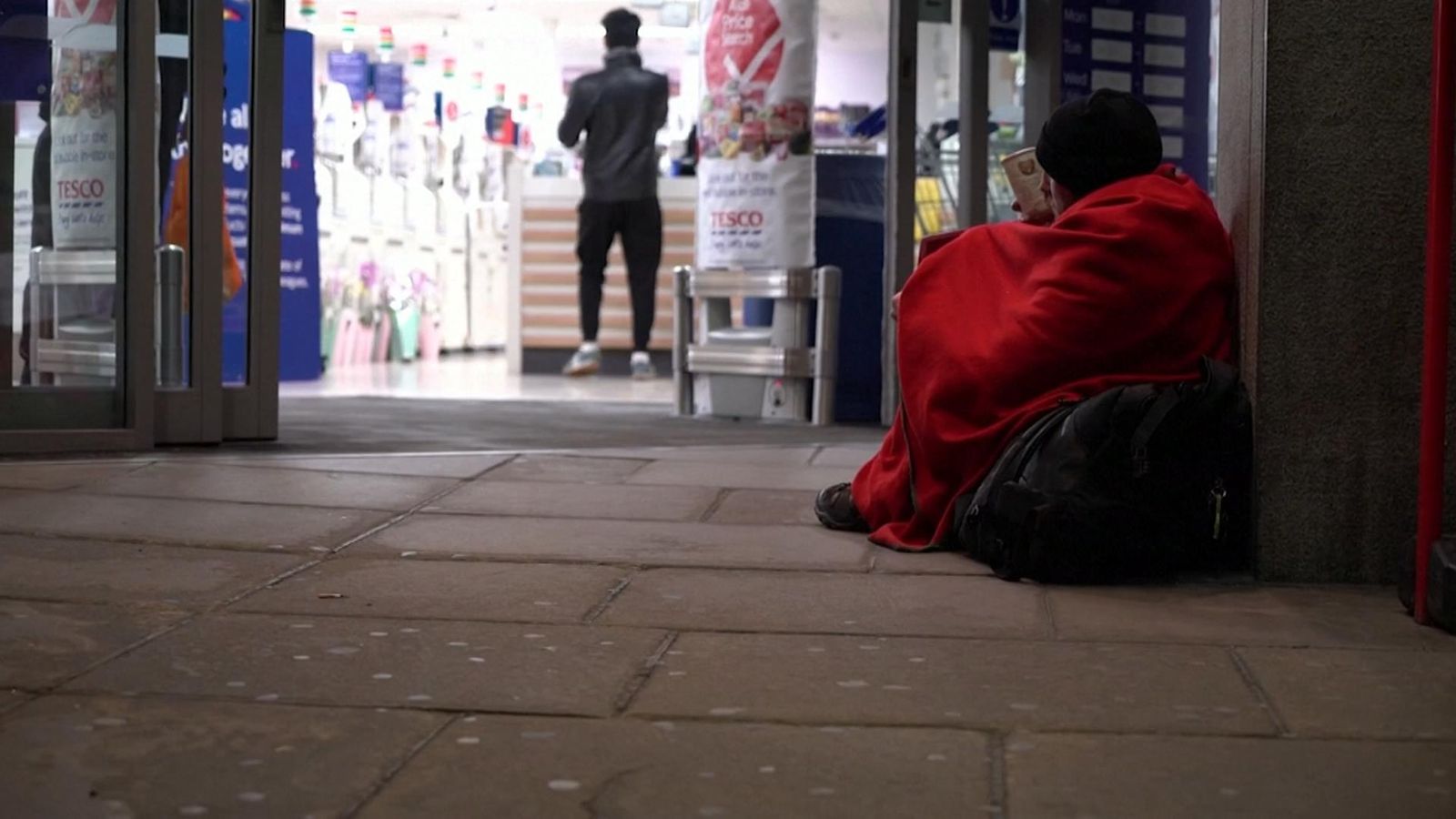The number of homeless people seeking NHS treatment has surged in the past four years, as the homelessness crisis fuels a health crisis, according to a charity.
In the past year, 78,000 hospital visits, one every seven minutes, were made by people with “no fixed abode” in England, research by The Salvation Army suggests.
Freedom of information data from 60 NHS England Trusts shows between 2017/18 – 2021/22 hospital admissions dropped by 4% among the general population.
But for the homeless population, hospital admissions increased by 60% and the number of people presenting to A&E also increased by 33%.
Zakariah became homeless in 2019 and has spent years in and out of temporary accommodation.
He’s currently living in a hostel, being supported by the Single Homeless Project (SHP) in London.
Zakariah struggles with dissociative identity disorder, insomnia, anxiety and a diagnosed lung condition.
Prince William’s homelessness project pushes his political neutrality to its limits
Ginger Spice Geri Horner joins Prince William on mission to end homelessness
Prince William launches project to help end homelessness in Britain
He told Sky News being homeless often prevents him from getting the support he needs.
“You want me to go to hospital and tell them I’ve got this and that?
“Obviously they’re not going to listen unless you bring someone like a support worker or a health lead, you have to go with someone, otherwise impossible.
“As a person like me I can’t approach it unless you’ve got help from a professional.
“It’s so frustrating that you don’t feel it any more, for me it’s become a routine and I’m used to it.”
Please use Chrome browser for a more accessible video player
Zakariah isn’t alone in his struggle, at the SHP, director of services Toni Warner says they hear stories and experiences like this time and time again.
Ms Warner told Sky News: “Our clients present with a complexity of issues and they’ve been multiply disadvantaged over really long periods of time so those problems have become compounded.”
She believes the problems lie in the fact that health services are often disjointed.
“What’s needed is to bring substance treatment, physical health care and mental health care together – but NHS services are not always commissioned as a totality – clients find the system so difficult to navigate.”
The SHP introduced their own specialised health support services and have since seen an 89% increase in people from the homeless population getting the treatment they need.
Dr Will Pearson, GP and Salvation Army Captain told Sky News that the situation playing out shows “the homelessness crisis fuelling the health crisis – those things are contributing to each other”.
“We’re really keen that we tackle the causes of homelessness, so better support in the community for addiction, better support in the community for mental health and that’s through health budgets, but also through local authority budgets.”
Please use Chrome browser for a more accessible video player
Read more:
Ginger Spice Geri Horner joins Prince William on mission to end homelessness
Prince William launches project to help end homelessness in Britain
Professor Tim Kendall, NHS England clinical national director for mental health, said: “As part of a drive to tackle health inequalities, the NHS is opening more than a dozen mental health clinics so that homeless people can access specialist support in a convenient location.
“NHS teams working with local authorities will seek out rough sleepers who have often been through incredibly traumatic experiences to ensure they get the help they need – and do not fall through the cracks.
“While the NHS cannot solve homelessness on its own, we are trying to reach out to homeless people and working hard to ensure that those who need mental health support get it. To do that, we are making it as easy as possible to access services, designed and built around patients’ needs.”
Meanwhile, a government spokesperson said £2bn has been committed to tackle homelessness and rough sleeping.






















